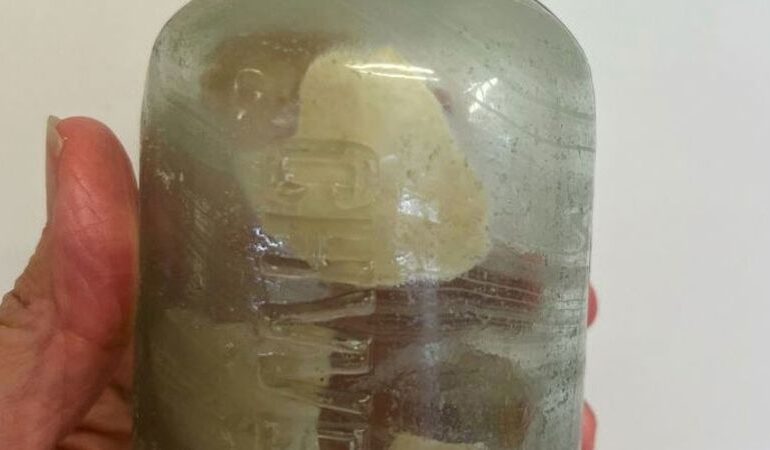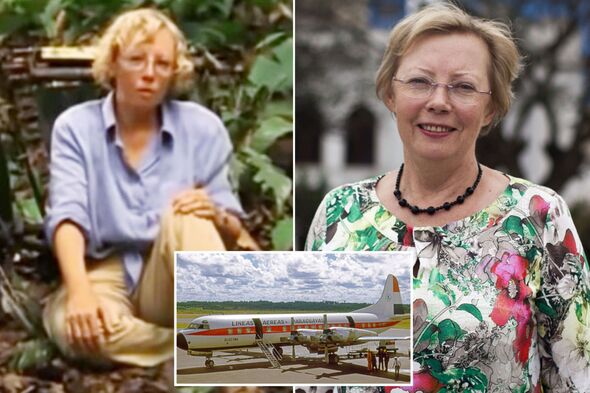Messages in Bottles from WWI Soldiers Discovered on Australian Beach

Messages in a bottle written by two Australian soldiers during World War I have been discovered over a century later on the shores of Australia. The **Brown family** uncovered the Schweppes-brand bottle on **October 9, 2023**, at Wharton Beach, located near **Esperance** in **Western Australia**. While cleaning the beach, Deb Brown, along with her husband Peter and daughter Felicity, stumbled upon this remarkable find just above the waterline.
Deb Brown recounted the moment, stating, “We do a lot of cleaning up on our beaches and so would never go past a piece of rubbish. So this little bottle was lying there waiting to be picked up.” Inside the thick glass, two letters penned in pencil by **Privates Malcolm Neville**, aged 27, and **William Harley**, aged 37, were dated **August 15, 1916**. Their troop ship, **HMAT A70 Ballarat**, had departed from **Adelaide**, South Australia, on **August 12** of that year, heading to the battlefields of France to reinforce the **48th Australian Infantry Battalion**.
The letters provide a glimpse into the soldiers’ thoughts as they embarked on their journey. Neville, who later lost his life in battle, wrote to his mother, expressing that he was “having a real good time,” despite one meal they “buried at sea.” He described the ship as “heaving and rolling,” yet assured his mother that they were “as happy as Larry,” a term indicating great happiness. Harley, whose mother had passed away by 1916, expressed well-wishes, saying, “may the finder be as well as we are at present.”
The message also indicated their location, with Neville stating they were “Somewhere at Sea” and Harley noting they were “Somewhere in the Bight,” referencing the vast **Great Australian Bight** that stretches from **Adelaide** to **Esperance**.
Deb Brown speculated that the bottle had not traveled far, likely remaining buried in the sand dunes for over a century. Recent erosion caused by significant swells along Wharton Beach may have dislodged it. Although the paper inside the bottle was wet, the writing remained legible, enabling her to notify the soldiers’ families about the remarkable discovery.
“The bottle is in pristine condition. It doesn’t have any growth of any barnacles on it,” Deb Brown noted. “If it had been at sea or exposed for that long, the paper would’ve disintegrated from the sun. We wouldn’t have been able to read it.”
Harley’s granddaughter, **Ann Turner**, expressed her family’s astonishment at the find, stating, “We just can’t believe it. It really does feel like a miracle, and we do very much feel like our grandfather has reached out for us from the grave.”
Similarly, **Herbie Neville**, a great-nephew of Malcolm Neville, reflected on the impact of this discovery. He shared, “It sounds as though he was pretty happy to go to the war. It’s just so sad what happened. It’s so sad that he lost his life.” He added with pride, “Wow. What a man he was.”
This incredible find not only connects the present with a poignant moment in history but also serves as a reminder of the sacrifices made by soldiers like Neville and Harley during the tumultuous times of World War I. The Brown family’s commitment to keeping their local beaches clean has allowed these long-lost messages to resurface, bridging time and memory in a truly extraordinary way.






